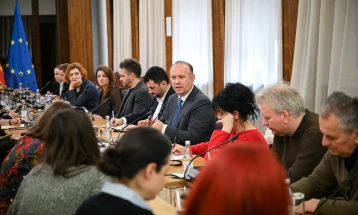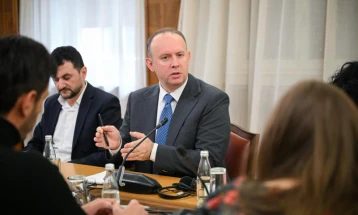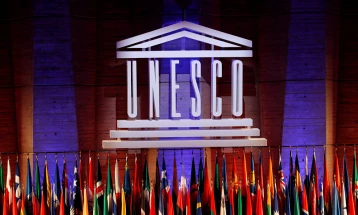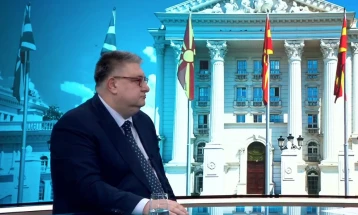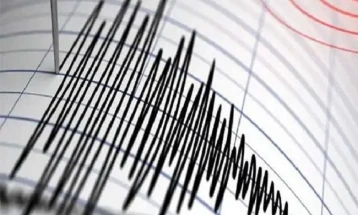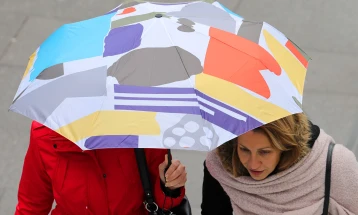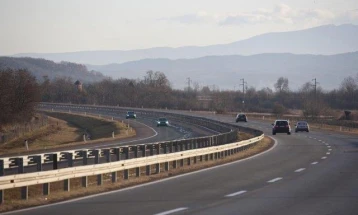UNICEF is calling on action for improved air quality to protect child rights and wellbeing
- More than 5,800 children and teenagers in Europe and Central Asia died in 2019 from causes related to air pollution. The vast majority – 85 per cent – died before their first birthday, the equivalent of 90 babies a week, according to a new data analysis featured in a policy brief published today by UNICEF.
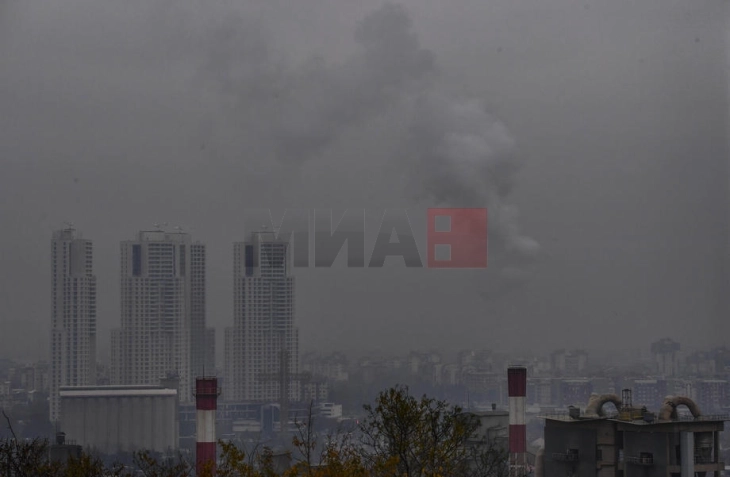
Skopje, 7 September 2023 (UNICEF/MIA) - More than 5,800 children and teenagers in Europe and Central Asia died in 2019 from causes related to air pollution. The vast majority – 85 per cent – died before their first birthday, the equivalent of 90 babies a week, according to a new data analysis featured in a policy brief published today by UNICEF.
Breathless beginnings: the alarming impact of air pollution on children in Europe and Central Asia notes that children exposed to air pollution are at an increased risk of severe health problems including acute respiratory infections such as pneumonia, particularly dangerous for babies and young children.
Breathing polluted air causes long lasting damage to children’s lungs, leading to an increased risk of asthma and chronic respiratory and cardiovascular illnesses and diseases including cancer. Air pollution can lead to neurological disorders later in life as a result of early damage to children’s brains, notes the policy brief.
Children are physically more exposed to air pollution than adults because they breathe twice as fast and often by mouth, taking in more pollutants. They are often closer to the ground where pollutants are accumulated. Children are physiologically more vulnerable to air pollution than adults because their brains, lungs and other organs are exposed to inflammation and damage during a period of rapid development, the brief notes.
Across the Western Balkans, air pollution levels are breathtakingly high and take an enormous toll on human health and mortality. North Macedonia is no exception, with Skopje, the capital, and multiple other cities frequently topping the charts of most air-polluted cities in Europe and beyond. Air pollution is the single greatest environmental threat to human health in the region, with city dwellers breathing air with concentrations of pollutants up to five times higher than levels specified in national and European guidelines.
This is affecting the lives of thousands of citizens on an annual basis. But children are much more sensitive because when it comes to air pollution, the tiniest lungs carry the heaviest burden.
“Air pollution is a child rights crisis, as it has lifetime effects and poses a significant threat to the overall health, development and well-being of children,” stated Patrizia DiGiovanni, UNICEF Representative. “Air pollution is affecting children’s right to life, health, education, play, non-discrimination, adequate standard of living and the right to a safe, clean, healthy and sustainable environment. Addressing this issue is essential for ensuring that children have the opportunity to grow up in a safe and healthy environment and fully develop their potential.”

In North Macedonia UNICEF is working in partnership with Sweden to address air pollution by strengthening the capacities of national and local governments as duty bearers with respect to air quality management and air quality data, whilst also elevating the voices of children and youth, as rights holders, to change policy and social norms.
As part of the partnership, UNICEF is currently working on improving the quality of environmental education in schools, with special focus on air pollution. An experiential learning programme will be offered to schools through the Science Learning Network, to enable students to learn and meaningfully engage with the topic of air quality. Moreover, UNICEF is also supporting the development of formal and non-formal education programmes for green jobs and better air quality, that will contribute to tackling air pollution and future youth employment in the Green Economy.
For meaningful systemic change to happen, children and youth must have relevant knowledge on issues related to air pollution, they need access to platforms that allow them to advocate for clean air solutions and policies, and regulations targeting air pollution need to be child and youth-sensitive.
To this end, UNICEF is also continuing to support youth to become active agents of change and advocates for improving air quality within their communities, through capacity development of youth networks for communication and advocacy skills on clean air, and through platforms for social innovation and environmental entrepreneurship.
In parallel, UNICEF is supporting local authorities to ensure that local air quality plans and measures are child- and youth-sensitive, so that children’s rights and their special vulnerabilities are systematically taken into account, in line with local specificities.

UNICEF calls on national and local authorities to strengthen policies and investments to expedite the transition to clean, efficient energy and transport across all sectors. This includes supporting energy efficiency and access to clean energy, training primary health care professionals to screen children and detect air pollution-related illnesses, and scaling up and expediting plans to reduce air pollution at national and municipal levels.
To protect children from exposure, UNICEF calls on authorities to set up and maintain air quality monitoring systems nearby kindergartens and schools, and report information to the public, noting levels of air pollution that are dangerous to children and pregnant women.
Photo: MIA archive
